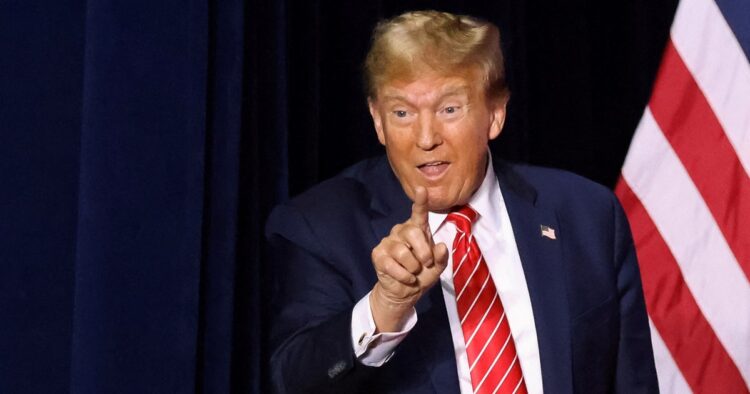In a recent interview with GB News, former President Donald Trump reiterated his stance that the United States would only come to the aid of NATO members in case of a Russian attack if those European countries spent more on defense. This echoes his previous controversial remarks where he stated that if NATO members didn’t meet their defense spending targets, he would essentially allow Russia to act freely towards them.
During the interview with Nigel Farage, Trump defended his earlier statement about a potential “bloodbath” in the American auto industry if he lost the election. He cited concerns about foreign competition and the shift towards electric cars, particularly those manufactured in China. However, he didn’t elaborate further on these predictions.
Trump also reiterated his hardline stance on immigration, emphasizing that migrants crossing the U.S.-Mexico border illegally would face deportation under his presidency. He stressed the importance of legal immigration processes and expressed his determination to swiftly remove undocumented individuals, particularly those with criminal backgrounds.
Throughout his presidency and beyond, Trump has consistently criticized NATO members for failing to meet the alliance’s defense spending target of 2% of GDP. He emphasized that the United States, as the primary contributor to NATO’s military power, should not bear the burden of funding the alliance alone.
Despite facing backlash for his previous remarks, Trump remained steadfast in his position, asserting that NATO members must fulfill their financial obligations for the United States to guarantee their defense. He brushed off concerns about political opponents using his statements against him, framing them as a negotiating tactic to ensure fair burden-sharing within the alliance.
In response to Trump’s comments, NATO Secretary-General Jens Stoltenberg had previously stated his expectation that 18 allies would reach the spending target this year. However, Trump’s insistence on NATO members paying their “fair share” reflects his ongoing commitment to reshaping international alliances and redistributing defense responsibilities.

















Comments